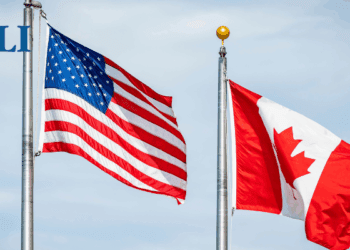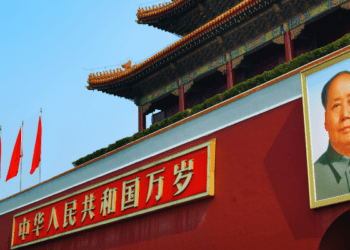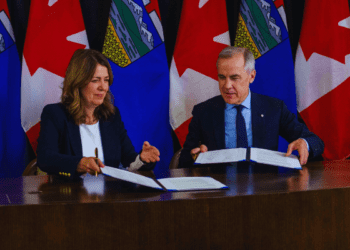On November 5, 2011, the Ottawa Citizen published MLI Managing Director Brian Lee Crowley’s latest column about how the Professional Institute of the Public Service of Canada is considering joining the Canadian Labour Congress (CLC). The column is copied below and it also appeared in National Post Chris Selley’s Weekend Roundup.
Things I didn’t know about unions
By Brian Lee Crowley, Ottawa Citizen, November 5, 2011
I just love newspapers.
You learn such interesting things in them—things you might never have known otherwise.
Take the front page article in Thursday’s Citizen about how the Professional Institute of the Public Service of Canada (PIPSC), representing professionals in the federal public service, is considering joining the Canadian Labour Congress (CLC). The CLC is the big union central that brings together under one umbrella most of the trade unions in Canada today.
According to representatives of PIPSC , the drive to abandon the union’s traditionally stand-offish policy toward the CLC was motivated by the dire challenge created by a Conservative government in Ottawa. Trade unionism must gather its forces to combat the government’s plans to attack unions and public services. We also learned in the article that, “deficits caused by the financial crisis [are] being blamed on the public sector.”
See what I mean about newspapers? I didn’t know all that stuff.
Gosh, in fact I’d been labouring under a terrible misapprehension. I was all confused by the fact that the government’s “temporary” stimulus spending to combat the recession was turning out not to be temporary at all. Instead that stimulus has largely been folded into the spending base and has permanently set government spending at a higher level.
Not only that, but I was blinded by the fact that if we could just wring the “temporary” stimulus spending out of the budget, and return to the pre-recession rate of spending growth, we’d be back in budget balance today. And I was wrongly impressed by the fact that that pre-recession rate of spending growth was faster than the rate of growth of the economy and of the population put together, meaning that government was already getting much bigger every year, even before the recession turbo-charged it.
Far from being a conspiracy to do down the unionized working class, I had been under the mistaken impression that the government’s plans to cut $4 billion in annual spending over four years was actually too timid a target and was highly unlikely tput us back in budget balance, especially since population aging is about to make public finances deteriorate even further. And that the financial crisis was really irrelevant now that we have recovered all the jobs and all the economic activity we had lost during the recession.
Finally, I was clearly wrongly impressed by what happened the last time we squeezed the public sector in order to fix public finances. After Jean Chretien and Paul Martin balanced the budget we enjoyed a decade of high growth, falling taxes, rising investment and explosive jobs growth—all while cutting all-government spending from over half of GDP to under 40 percent. And PIPSC’s stated objective in joining the CLC—a strictly non-partisan desire to protect public services—enabled me to put to bed another of my misconceptions: that a union with that in mind would have joined up when the Liberals were cutting 90,000 federal jobs in the 1990s, not after years of Tory-led public sector expansion.
Of course that’s not all I learned in this article. Apparently PIPSC’s leaders say now is a good time to join because the CLC has changed—the majority of its members are now public servants and have university degrees and other neat stuff. The CLC “has a growing number of professional and ‘knowledge’ workers…and is no longer dominated by large industrial unions.”
Golly, I just had it backward until I read that. I thought the issue wasn’t the growth of white collar trade unionists, but that private sectors workers were abandoning the trade union movement in droves. Its class warfare mentality is singularly ill-suited to a free-trading world where workers and management must work together to best foreign competitors.
Thus over the last 50 years the trade union movement has become the preserve of public sector workers, whose unique circumstances are a trade unionist’s dream.
If the unionized workers go on strike at GM or Ford or Chrysler, you can still buy a car from (non-union) Honda or Hyundai or Toyota. If Air Canada goes on strike, you can still fly WestJet or Porter.
But if the people who issue EI and CPP cheques and passports, who control the border and inspect our food go on strike, the service they provide disappears, inconveniencing angry voters and frightening politicians. This effective monopoly confers a bargaining power private sector workers can only dream of, while their employer is immune from the threat of bankruptcy.
These workers thus frequently enjoy better pay and benefits than their private sector counterparts, who foot the bill. In my naïvete I thought preserving these unearned privileges was the best explanation for public sector workers’ love affair with trade unionism.
I understand so much better now. And that’s why I just love newspapers.




